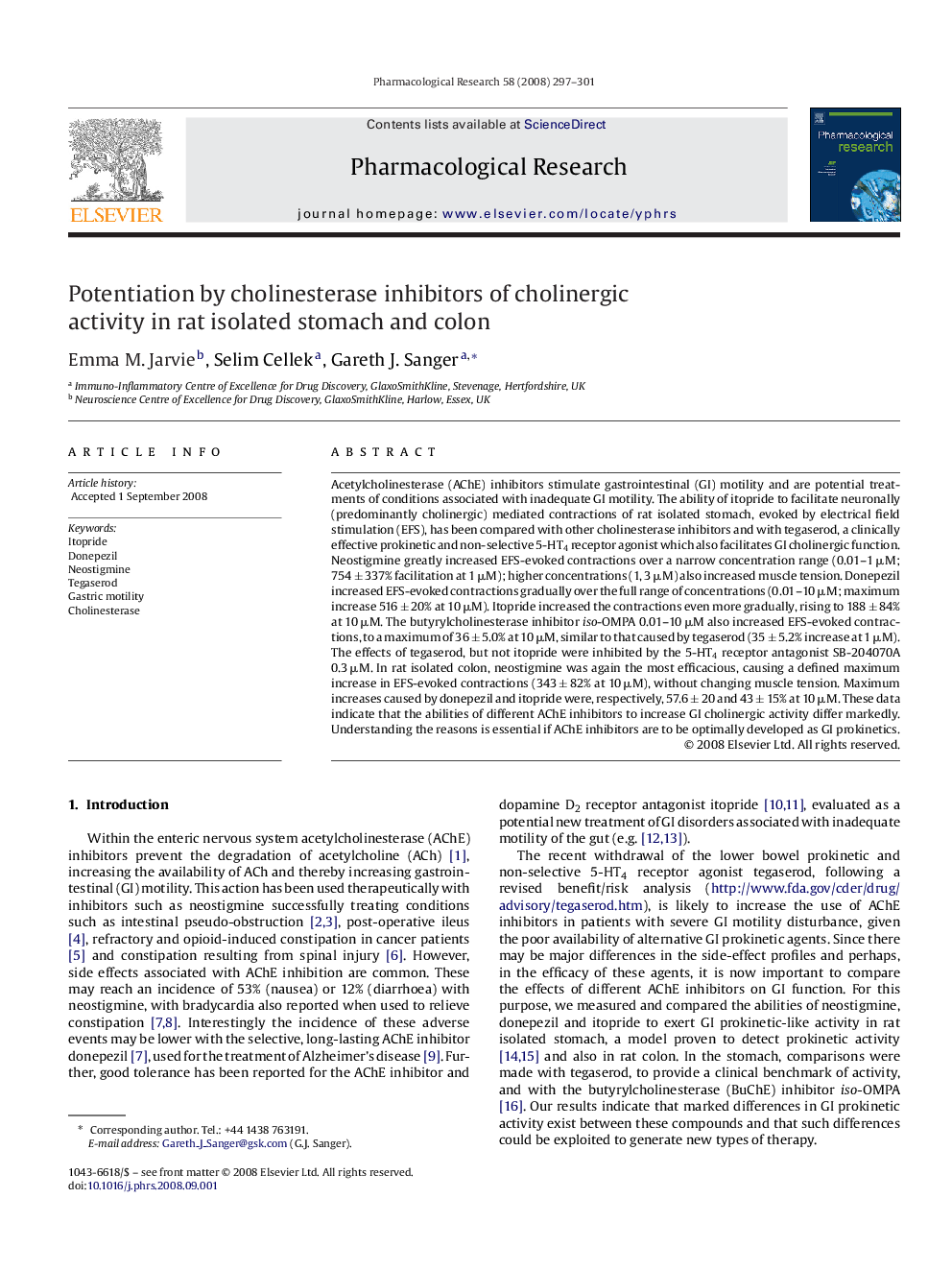| Article ID | Journal | Published Year | Pages | File Type |
|---|---|---|---|---|
| 2561788 | Pharmacological Research | 2008 | 5 Pages |
Acetylcholinesterase (AChE) inhibitors stimulate gastrointestinal (GI) motility and are potential treatments of conditions associated with inadequate GI motility. The ability of itopride to facilitate neuronally (predominantly cholinergic) mediated contractions of rat isolated stomach, evoked by electrical field stimulation (EFS), has been compared with other cholinesterase inhibitors and with tegaserod, a clinically effective prokinetic and non-selective 5-HT4 receptor agonist which also facilitates GI cholinergic function. Neostigmine greatly increased EFS-evoked contractions over a narrow concentration range (0.01–1 μM; 754 ± 337% facilitation at 1 μM); higher concentrations (1, 3 μM) also increased muscle tension. Donepezil increased EFS-evoked contractions gradually over the full range of concentrations (0.01–10 μM; maximum increase 516 ± 20% at 10 μM). Itopride increased the contractions even more gradually, rising to 188 ± 84% at 10 μM. The butyrylcholinesterase inhibitor iso-OMPA 0.01–10 μM also increased EFS-evoked contractions, to a maximum of 36 ± 5.0% at 10 μM, similar to that caused by tegaserod (35 ± 5.2% increase at 1 μM). The effects of tegaserod, but not itopride were inhibited by the 5-HT4 receptor antagonist SB-204070A 0.3 μM. In rat isolated colon, neostigmine was again the most efficacious, causing a defined maximum increase in EFS-evoked contractions (343 ± 82% at 10 μM), without changing muscle tension. Maximum increases caused by donepezil and itopride were, respectively, 57.6 ± 20 and 43 ± 15% at 10 μM. These data indicate that the abilities of different AChE inhibitors to increase GI cholinergic activity differ markedly. Understanding the reasons is essential if AChE inhibitors are to be optimally developed as GI prokinetics.
